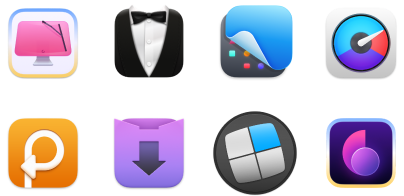Do you need virus protection on a Mac?
- Yes, you need virus protection on a Mac in 2026.
While macOS includes strong built-in security, it is not immune to malware. Modern threats like Atomic Stealer and supply-chain attacks prove Macs are actively targeted. - macOS security tools provide a solid foundation but not full protection.
Features like Gatekeeper, XProtect, FileVault, Firewall, and SIP protect against known threats. However, newly signed or zero-day malware can bypass signature-based defenses. - Mac malware is becoming stealthier and more advanced.
In 2026, attackers use AI-powered phishing, notarized malware, blockchain-based command systems, and infostealers targeting passwords, SSO tokens, and developer credentials. - Layered protection and smart habits are essential.
Turn on Firewall, review Privacy settings, keep macOS and browsers updated, avoid suspicious downloads, use a VPN on public Wi-Fi, and consider Lockdown Mode if you are high risk. - The simplest way to stay protected is with a curated toolkit like Setapp.
Apps such as Moonlock and CleanMyMac strengthen your Mac’s defenses with real-time protection and malware detection. With Setapp’s 7-day free trial, you get access to these tools plus 260+ other apps in one subscription.
I've been thinking about Mac security lately, and it's something that comes up more often than you might expect. While attackers are getting more creative with their methods — especially with new threats like Atomic Stealer and RustBucket — the good news is there are straightforward ways to keep your Mac protected. If you’re wondering, “Do I need virus protection on a Mac?” — the short answer is: while macOS has excellent built-in tools, yes — adding dedicated protection really gives you peace of mind.
Virus protection on a Mac at a glance in 2026
In the table below, I’ll describe the key ideas about virus protection on Mac. For in-depth analysis, scroll down.
| Key question | Answer | Pro tip |
| Can Macs get viruses? | Yes. Malicious software like stealers, spyware, ransomware, and others are real on Apple devices, though less common than on Windows | Avoid suspicious downloads & links |
| Is built-in security enough? | Excellent foundation (Gatekeeper, XProtect, SIP) for known threats | Add real-time scanning for zero-days |
| Top everyday habits | Updates + Firewall + Privacy checks | Layer a dedicated security software like Moonlock and CleanMyMac |
| Signs something’s wrong | Pop-ups, slowdowns, unexpected alerts | Scan immediately & back up clean data |
How macOS protects your computer
Can Macs get viruses? I used to think my Mac was pretty much bulletproof since I rarely heard about Mac-specific attacks. It’s a common misconception about Apple products. Many of us have bought into the idea that Macs are invincible. While it's true that macOS and iOS are less targeted than Windows, no computer is immune to malware.
Apple builds several layers of security into every Mac computer:
- Gatekeeper: Only lets you install apps from the App Store or trusted developers.
- XProtect: This built-in antivirus technology scans files for known malware.
- FileVault: Encrypts information stored on your Mac. Only your login password can unlock this encrypted data.
- Firewall: Blocks unwanted incoming connections when you’re online.
- System Integrity Protection (SIP): Prevents unauthorized apps (even those with admin rights) from changing critical system files. This function largely determines your operating system's integrity and resistance to potential hacks.
- App Sandbox: macOS first sends apps from the Mac App Store and identified developers to the sandbox, limiting their access to sensitive system resources.
- Privacy Controls: Apps cannot access confidential information (like your location, microphone, or camera) without your explicit permission.
- Regular Security Updates: Apple regularly releases updates that improve security, fix known vulnerabilities, and counter new threats.
Do you need antivirus on a Mac?
The folks at Moonlock (part of the MacPaw team) recently shared findings from their 2025 Mac Security Survey that I found pretty eye-opening. Only 46% of Mac users still think that malware does not exist on macOS. But here’s the kicker: 66% of respondents have personally experienced or know someone who experienced malware, hacking, scam or fraud.
Here’s what Mac users reported facing:
- Malware and viruses
- Account hacking, password theft
- Fraud, phishing attacks, social engineering
- Data breaches and identity theft
- Harvesting of personal info from browsers and social networks
- Online payment security breaches
Apple includes many security features to safeguard your Mac against viruses. However, these tools work best when they know what threats to find. New malware strains can pop up faster than Apple’s updates can address them.
This is where having access to quality third-party protection really makes a difference. The apps we've curated on Setapp, like antivirus software Moonlock and CleanMyMac, are updated frequently and designed specifically to fill the gaps that built-in protection might miss. If you’re asking yourself, “Do I need antivirus for Mac?” — the answer is yes, Macs need antivirus.
Can Macs get viruses?
So, can Apple computers get viruses? I hate to be the bearer of bad news, but yes, they absolutely can. Even with Apple’s strong security measures, no system is 100% safe. Right now in 2026, the malware threats hitting Mac users are more active and sophisticated than ever — mostly smart infostealers that quietly grab sensitive data like passwords, crypto wallets, keychain data, and developer secrets.
Here are some recent types of malware on Macs:
- Atomic Stealer (AMOS): It keeps rolling out fresh variants through fake AI tool downloads (think phony ChatGPT or Grok installers) and cracked apps while adding persistent backdoors.
- DigitStealer: Sneaks in via bogus productivity software like fake DynamicLake apps and using clever multi-stage tricks aimed squarely at Apple Silicon Macs.
- MacSync Stealer: Delivered as code-signed installers that glide past Gatekeeper warnings to harvest browser credentials and more.
- GlassWorm: The brand-new supply-chain attacker that exploded onto the scene in February 2026 by hiding inside compromised VS Code extensions on OpenVSX — already downloaded tens of thousands of times before the bad versions were yanked.
6 macOS malware trends defining 2026 (Moonlock Lab report)
I've been following Moonlock Lab's research closely, and their February 2026 report really opened my eyes to how fast things are changing. The big theme? Malware isn't getting louder — it's getting quieter and smarter. In 2026, the threats we face on macOS are designed to blend in, stay hidden for months, and hit where it hurts most: our credentials, developer tools, and even enterprise access. Here's what Moonlock Lab says are the six key trends to watch:
- Automation and AI supercharge attacks — Attackers are using generative AI to craft convincing phishing, fake tool installers (like bogus Grok or ChatGPT apps), and even poisoned AI summaries that trick you into downloading something nasty.
- Signed and notarized no longer means safe — We're seeing more multi-stage, obfuscated malware compiled in languages like Zig that slips past Gatekeeper because it's code-signed and notarized by Apple.
- Infected Macs become proxy infrastructure — Once compromised, your Mac quietly relays traffic for criminals, making attacks harder to trace back while the malware stays silent.
- Command-and-control shifts to blockchain — No more easy-to-shut-down servers; some stealers and cybercriminals now use decentralized blockchain for persistence and communication.
- Infostealers go "upmarket" — Beyond grabbing passwords and crypto wallets, the sophisticated ones now target SSO tokens, CI/CD keys, cloud API credentials — perfect for enterprise extortion rather than just quick crypto grabs.
- Cross-platform ops treat macOS as mainstream — The same tooling that hits Windows now routinely includes Mac variants; macOS is no longer an afterthought.
Moonlock sums it up perfectly: "In 2026, macOS malware won’t look like malware at all — it will look trusted, familiar, and routine." That's exactly why layering on real-time behavioral detection (like what Moonlock provides) makes such a difference over Apple's signature-based XProtect alone.
8 tips to protect your Mac from viruses
Now that we've established that Macs do need antivirus protection, let me share some practical steps I've found helpful for keeping your Mac secure.
Tip 1. Turn on your Mac firewall
- Go to Apple menu > System Settings > Network.
- Click Firewall and turn it on. You might need your admin password.
A firewall helps block unauthorized access and keeps an eye on network traffic.
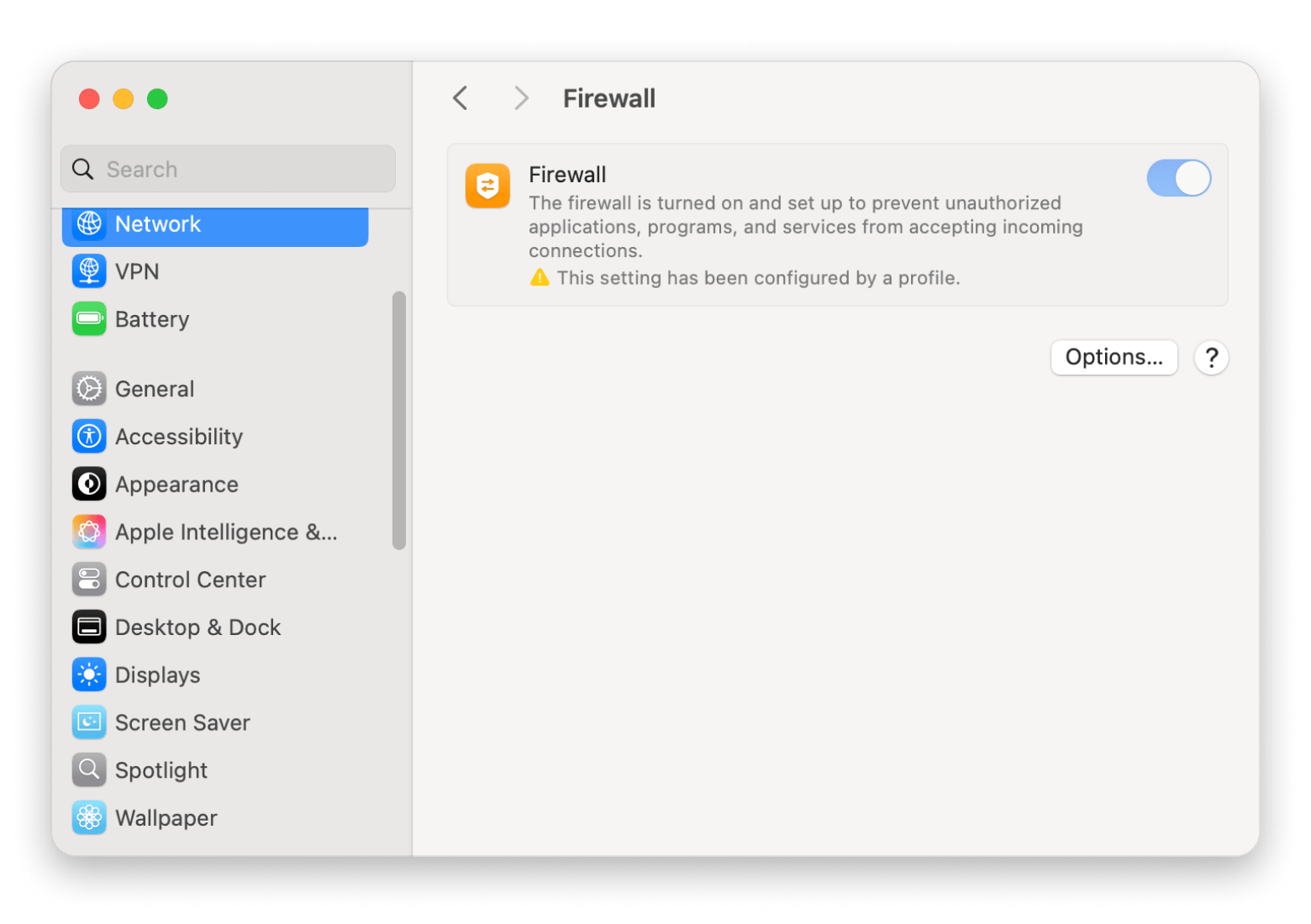
Tip 2. Check your Mac privacy settings
- Open Apple menu > System Settings > Privacy & Security.
- Review each category (Location, Microphone, Camera, etc.).
- Remove access for any suspicious or unknown apps.
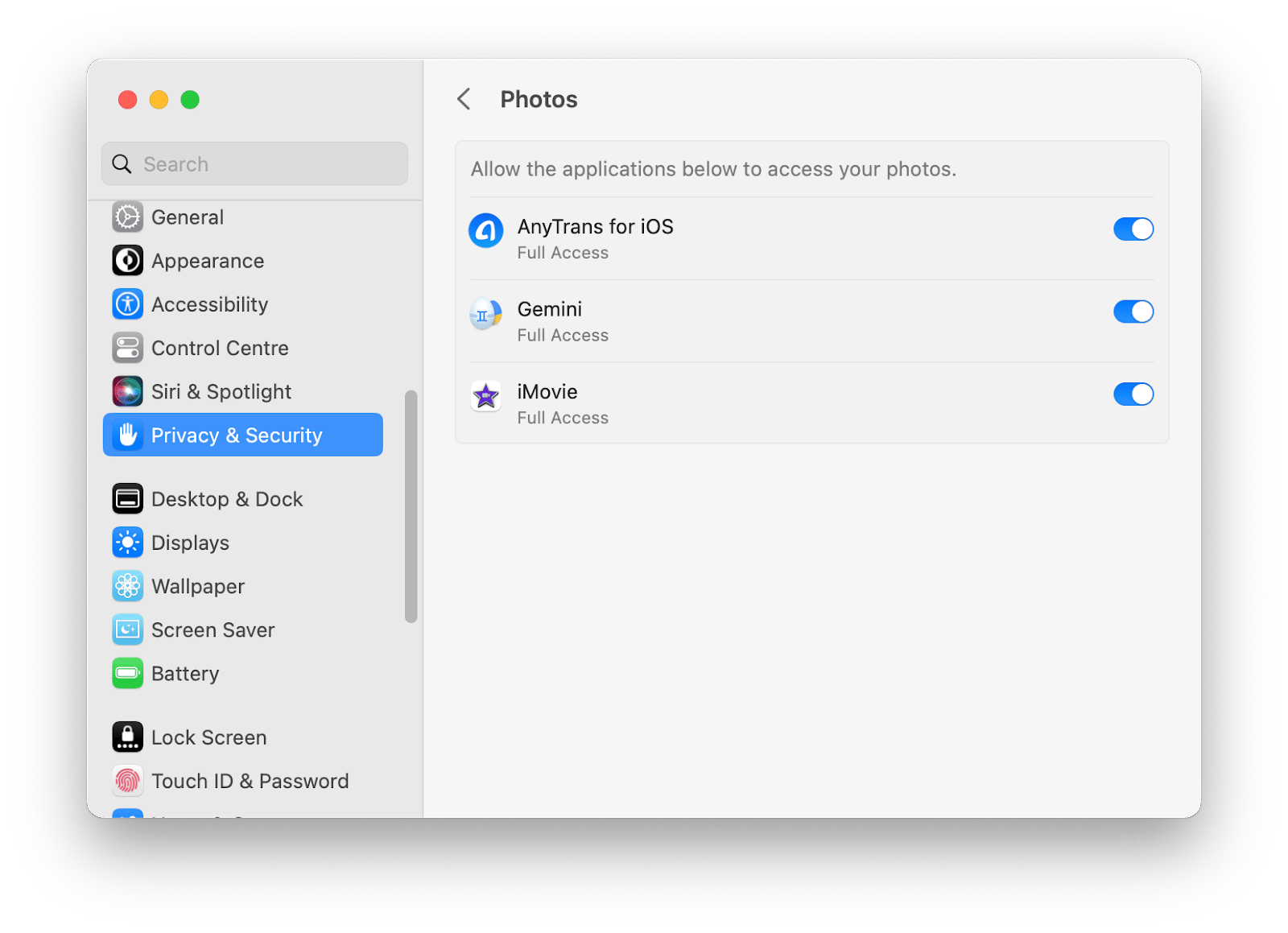
Tip 3. Be wary of email links
Email security is something I've had to learn the hard way. Here are the red flags I always watch for in suspicious emails:
- Unfamiliar sender addresses
- Links that don’t match the sender’s website (hover to check)
- Spelling or grammar mistakes
- Urgent requests or threats
- Requests for personal info or passwords
- Suspicious attachments
Tip 4. Use a virtual private network (VPN)
A VPN keeps your data private, hides your IP address, and protects you on public Wi-Fi. It’s not a replacement for other antivirus software or security measures, but it’s a great extra layer.
VPNs also guarantee anonymity and privacy, access to geo-restricted content, and protection against malicious websites. ClearVPN is a simple and convenient tool for secure work on Mac. With this app, you can quickly connect to a VPN, change your geolocation, protect the privacy of personal data, and more.
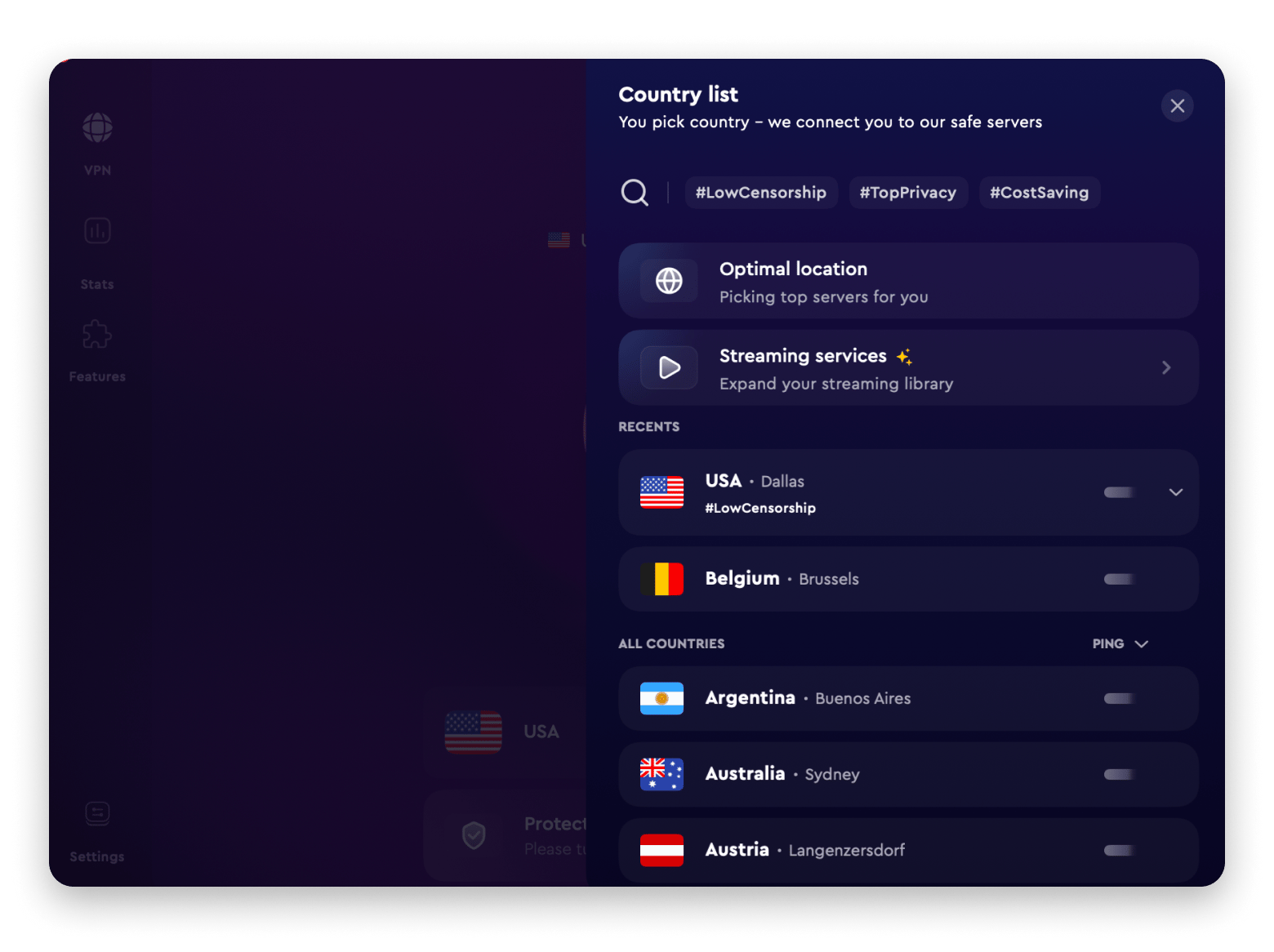
Tip 5. Respect file quarantine warnings
When you download an app, macOS may warn you if it’s unsigned or from an unknown developer. Don’t ignore these alerts—they’re there for your safety.
Tip 6. Install a malware protection app
If you suspect malware, use trusted antivirus programs to scan and remove threats. An antimalware program like Moonlock and a Mac care app like CleanMyMac are a good option.
Moonlock works quietly in the background, giving your MacBook real-time protection. If it detects malware, it tells you what type it is, explains why it’s dangerous, and provides instructions on what to do next. You can track all removed threats, spot patterns, and use that insight to avoid risky files in the future.
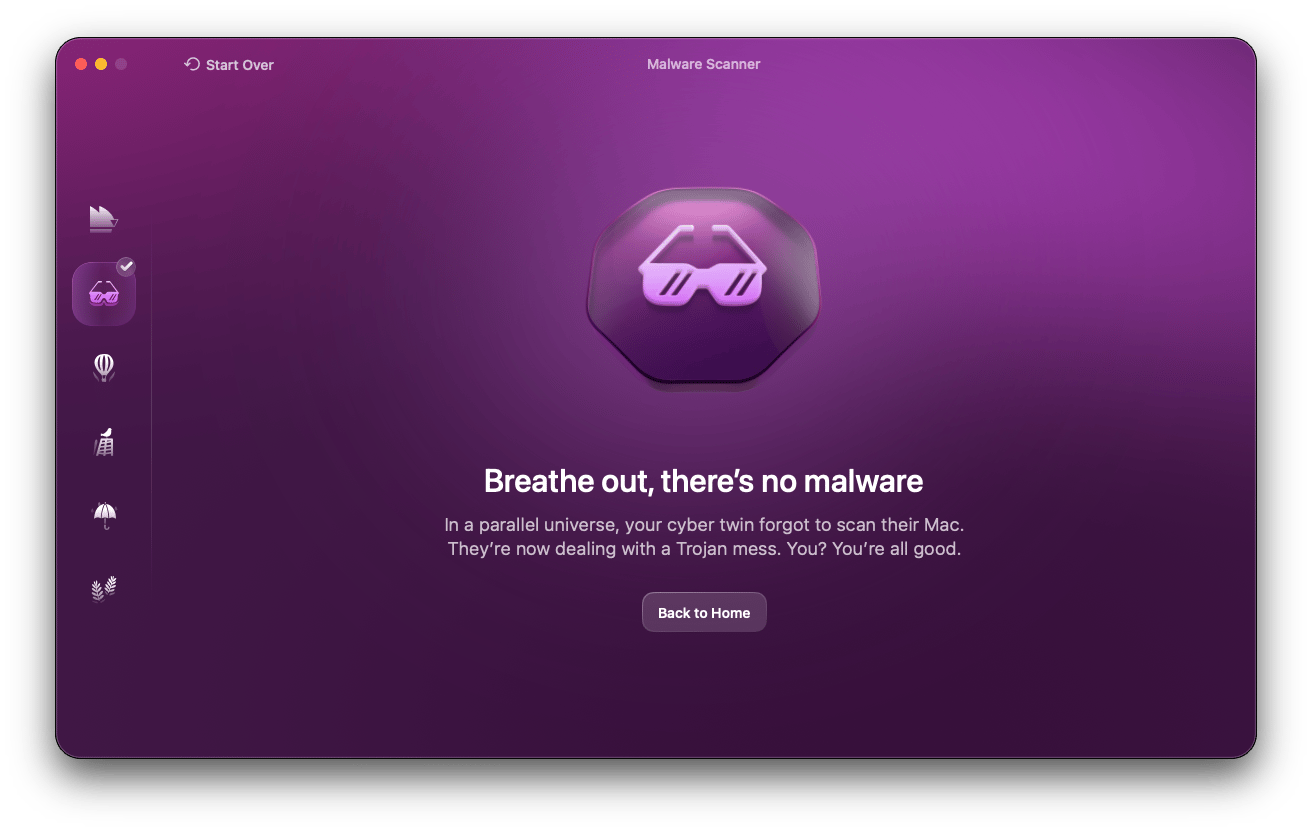
While Moonlock is a dedicated cybersecurity app, there’s also CleanMyMac, which uses the Moonlock engine as one of its features. In addition to malware protection, it takes care of your Mac overall — removing system junk, decluttering your storage space, optimizing performance, and more. It also quickly scans your Applications and can potentially help you reveal unwanted programs on your Mac.
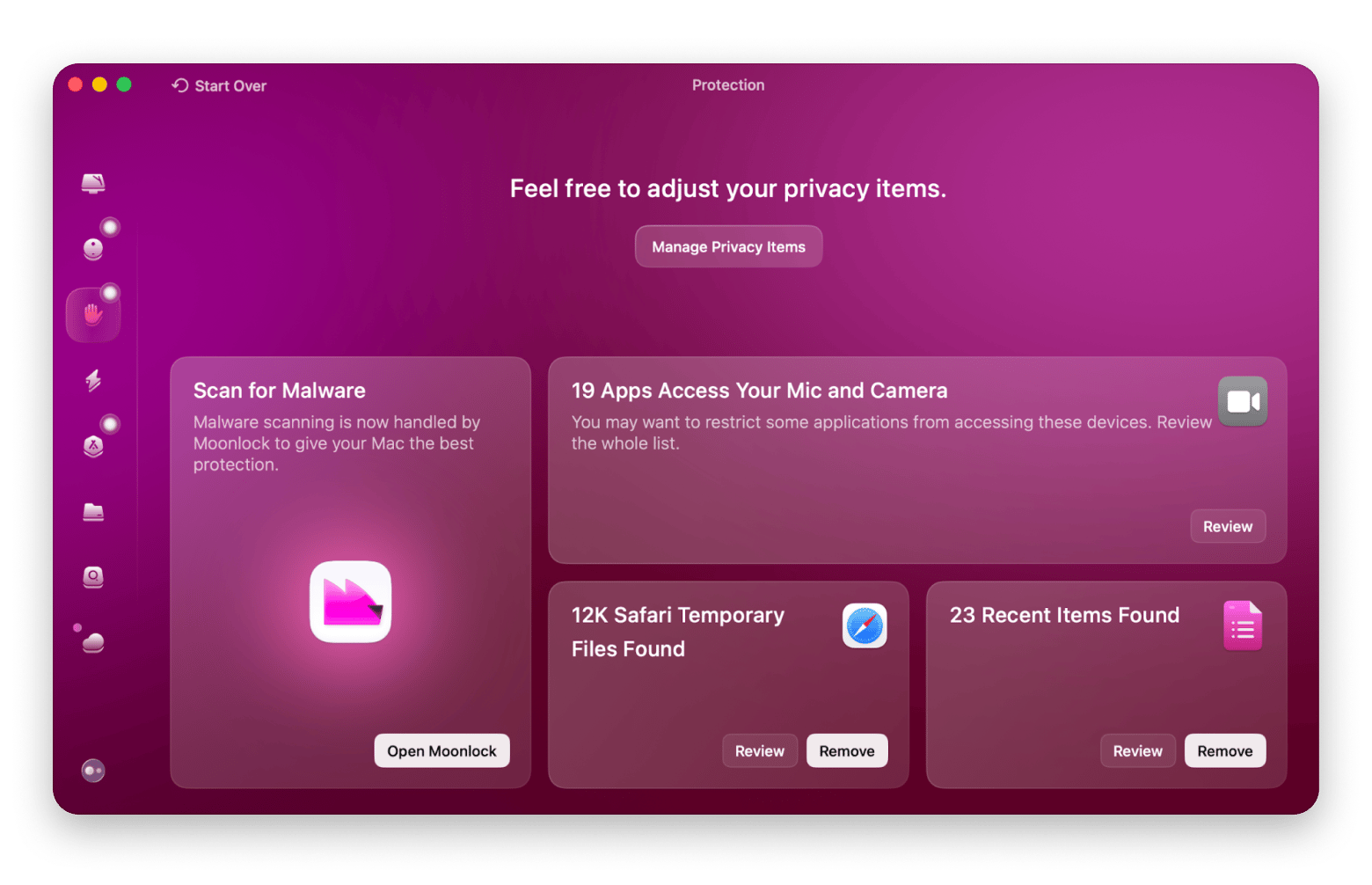
Tip 7. Avoid outdated Flash and Java
Hackers often use fake Flash or Java installers to spread malware. Most sites now use HTML5, so you rarely need these plugins.
Read also:
Tip 8. keep your browser up to date
Browsers release security patches regularly. Keeping yours updated protects against the latest threats.
Tip 9. Enable lockdown mode if you're a journalist, activist, or high-profile target
If you know (or even suspect) you're at higher risk of sophisticated spyware or targeted attacks (like state-sponsored stuff or advanced persistent threats), Apple's Lockdown Mode is a powerful last-resort shield. It dramatically reduces your attack surface by blocking most message attachments, disabling JIT compilation in Safari (which stops certain exploits cold), restricting some web technologies, and limiting incoming connections.
Here's how to turn lockdown mode on Mac on:
- Go to Apple menu > System Settings > Privacy & Security.
- Scroll all the way down to Lockdown Mode.
- Click Turn On Lockdown Mode, and follow the prompts (you'll need your admin password, and it may require a restart).
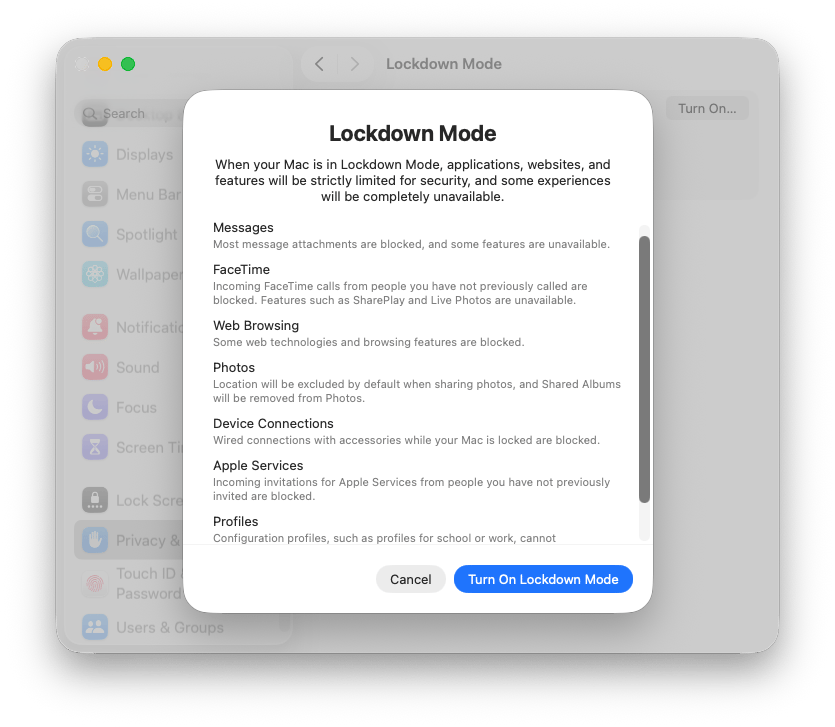
The trade-offs? It can break some features you rely on, like certain Continuity handoffs between devices, some web apps, or incoming FaceTime calls from unknown people. It's not meant for everyday use; it's for when the risk is real and worth the inconvenience. For most of us, the everyday habits and third-party protection are plenty, but if your work puts you in the crosshairs, this is one of the strongest tools Apple gives you.
Tip 10. Monitor Activity Monitor for suspicious processes and check security logs
Sometimes the first clue that something's off is right in your own system tools. Open Activity Monitor (Spotlight search: Command + Space, type "Activity Monitor") and keep an eye on the CPU, Memory, and Network tabs. Look for unfamiliar processes using unusually high CPU, spiking network traffic when you're not doing anything heavy, or processes with weird names that keep respawning.
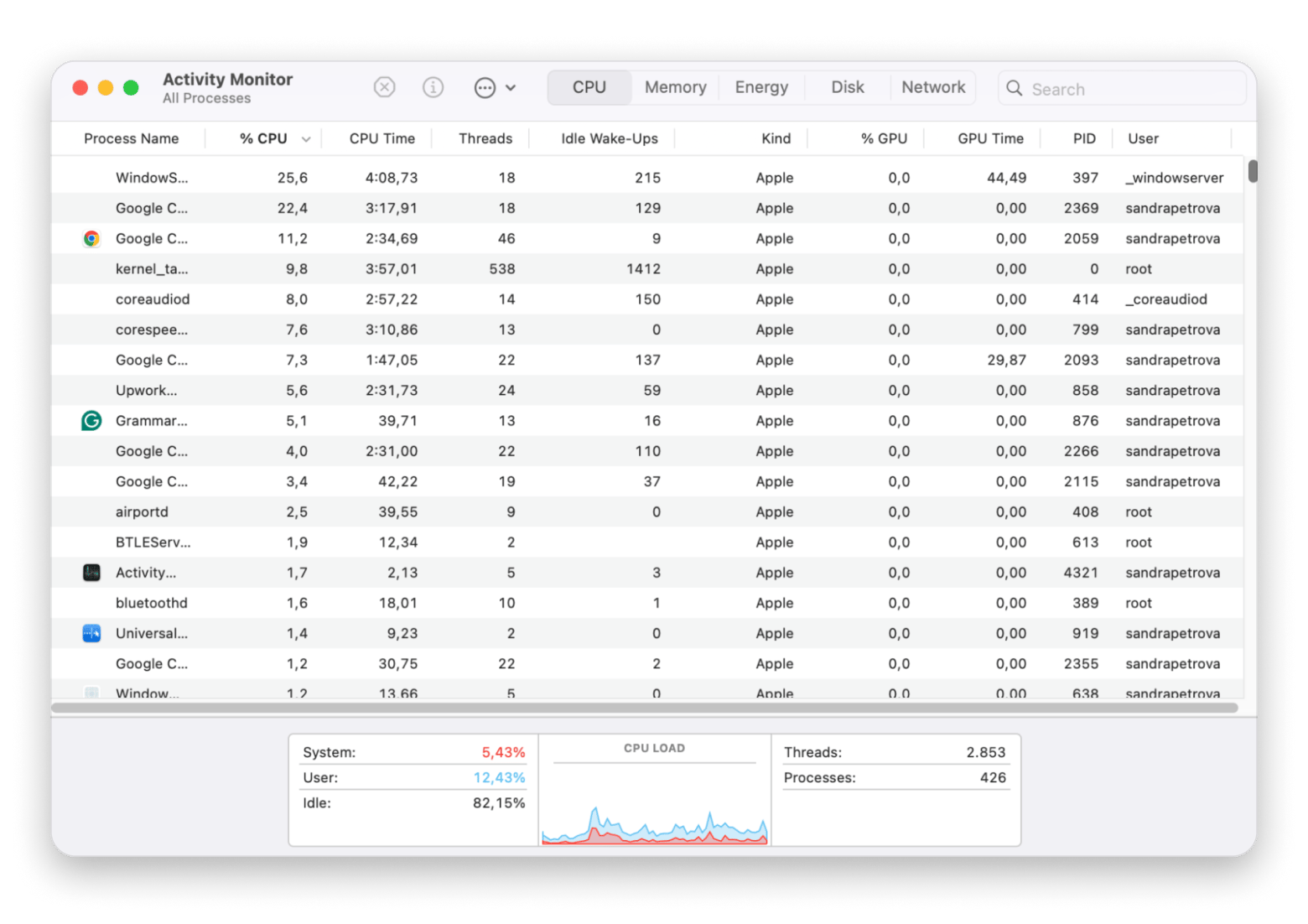
For a quick security log check, open Terminal and run this command:
log show --predicate 'subsystem == "com.apple.security"' --last 1d --info --debug
(It shows security-related logs from the last day; change "1d" to "7d" for a week.) Scan for anything that mentions denied access, unsigned code, or unexpected privilege escalations. If something looks fishy, screenshot it and run a full scan with Moonlock or CleanMyMac right away.
How to tell if your Mac has a virus
Wondering if your Mac might be infected? I've learned to spot a few telltale signs that something's not right.
- Unexpected ads and pop-ups: If ads appear where they shouldn’t, even outside your browser, you might have adware.
- Slow performance: A sluggish Mac can sometimes mean malware is running in the background.
- Malware scanner alerts: If a security app finds threats, take it seriously.
If you do find malware, back up your clean system with a tool like Get Backup Pro, then restore if needed.
Final thoughts on keeping your Mac virus-free
Can Apple computers get viruses? Do you need antivirus on a Mac? I hope it’s clear by now — the answer to both is yes. Built-in macOS security is strong, but it’s not foolproof. For peace of mind, I recommend using a trusted antivirus app and following the habits above.
All these tools are available through Setapp's 7-day free trial. If you're like me and prefer having a curated toolkit rather than hunting down individual apps, Setapp gives you access to all these security tools plus 260+ other productivity apps under one subscription.
Frequently asked questions
Do Macs have better virus protection than Windows?
Macs start with solid security: Apple controls the hardware and adds tools like Gatekeeper, XProtect, and System Integrity Protection. Because Windows PCs outnumber Macs, most malware still targets Windows. That doesn’t make Macs immune. New Mac-specific threats appear every year, so adding a trusted third-party anti-malware (for example, Moonlock and CleanMyMac) closes the gaps Apple hasn’t patched yet. Bottom line: Macs ship with good defenses, but no computer is hack-proof.
How do I know if an antivirus app is already on my Mac?
Every Mac has built-in protection like XProtect and Gatekeeper. To check for additional antivirus apps:
- Open Finder > Applications and look for names like Moonlock, CleanMyMac, Malwarebytes, etc.
- Use Spotlight (Cmd + Space) and search for “antivirus.”
- In System Settings > Privacy & Security > Profiles, check for any installed security profiles.
Are Macs safer from hackers than other computers?
Macs are generally more secure than many PCs because Apple controls both hardware and software. But no computer is immune. As Macs get more popular, hackers are targeting them more often. Good habits and up-to-date security tools are still essential.
Do Macs have built-in antivirus, and is it enough?
Yes, macOS comes with XProtect (Apple’s built-in antivirus), Gatekeeper, and other security features that block known threats. However, these tools only protect against malware Apple already knows about. New or sophisticated threats can still slip through. For full protection, it’s smart to use a reputable third-party antivirus software, like Moonlock or CleanMyMac, alongside macOS’s built-in defenses.
How can I tell if my Mac has a virus?
Look for these signs:
- Unusual pop-ups or ads, even when you’re not browsing
- Your Mac feels slow or hot for no reason
- Apps crash or behave strangely
- Security tools warn you about threats
If you notice any of these, run a malware scan and consider getting help from a professional.
What everyday habits keep my Mac safe?
- Keep your macOS and apps updated
- Use strong, unique passwords (a password manager helps)
- Don’t click suspicious links or download unknown files
- Regularly back up your data
- Use a VPN on public Wi-Fi
- Limit app permissions in Privacy & Security settings
